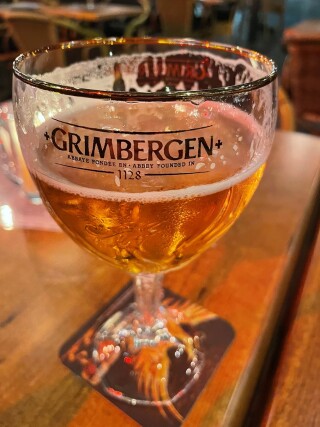Businesses are being urged to limit the amount of alcohol served at work events to prevent people from acting inappropriately towards others. The warning from the Chartered Management Institute (CMI) came as it released a poll suggesting a third of managers have seen harassment or inappropriate behaviour at parties.
While many senior leaders within the construction industry will be all too familiar with the problematic nature of a workplace drinking culture, in certain work environments alcohol does make sense, to a degree.
I’m not arguing for a return to the eighties — a time of epic five-hour lunches from which people staggered back to work to generate mayhem, wolf whistle, pick on people, crack bad jokes, and possibly cause a couple of industrial accidents. Additionally, in our sector, there are clearly huge health and safety requirements to consider. And there’s an inclusivity angle to alcohol at work; in our increasingly diverse workplace, not everyone wants to drink and you don’t want segments of your workforce to feel excluded from your events. Less obviously, there’s also a mental wellbeing point: 500 construction workers take their own lives every year and we have to accept that alcohol is a depressant.
However, I still think we should be careful before making rash decisions to ban alcohol from the workplace. These are the five reasons why you should not permanently cork the booze at work.
First, socialising with colleagues over some drinks is a great team building opportunity. Parties and alcohol can help to knit together new recruits and different parts of a business. The apparently banal, everyday activity of going for a drink with a colleague is, in fact, filled with meaning. It is not just a question of taking refreshment; a statement, of a kind, is being made. There’s social capital to be gained from boozing together. In this era of intense focus on mental health, we must also be cognisant of the loneliness pandemic. In a survey last year nine million people defined themselves as ‘lonely’ — a horrendous statistic. Spending time together with work colleagues away from a screen or a site is mental health gold dust in the fight against loneliness. The oxytocin hit that comes from socialising at work cannot be underestimated and has never been more important. We’ve recently had a country-wide test of what it’s like to never socialise, and the mental health sledge hammer that crashed through society is still being felt today.
Second, a big win is often still celebrated by a group of colleagues at the pub. Buying your team a few drinks is a gesture of goodwill; maybe an expression of gratitude, to be received as such. In a cost of living crisis, the free alcohol goodwill gesture carries more weight, for some, than ever. And a trip to the pub doesn’t necessarily equate to alcohol, last time I checked every one of the 40,000 pubs in the UK served non-alcoholic drinks.
Third, free drinks, undoubtedly, still increase attendance at functions. This is the one that really counts and the one that is too easily missed. You won’t discount the importance of this until you’ve tried to organise an after-hours event without the lure of chilled beer, a few cases of gavi and some fizz.
Fourth, alcohol still oils the wheels of business and serves as a social lubricant to win new clients and forge relationships of all kinds. Business is about relationships, anything that helps deliver on that commercial goal is priceless. And though there are some alternatives, none are actually as inclusive as going for a drink — whatever you experiment with, you’ll only succeed in finding something that is more excluding, more socially awkward, more expensive, and less accessible than going for a drink. It’s also noteworthy that post-pandemic, the hospitality industry is in dire straits. With 150,000 vacancies and half a dozen pubs closing a week, it’s an industry needing a lift — otherwise where will future generations meet and celebrate life’s small victories — online?!

Fifth, in particularly high octane environments, alcohol can also work as a pressure valve for those working long and tough hours. Somewhere to be a bit loud perhaps, tell jokes, and pop corks in a place where you don’t do your ‘actual’ work.
For these reasons, alcohol has traditionally played a prominent role in the world of business. Because business reflects the world we live in. The CMI is going too far and runs the risk of giving people far more of what they don’t want and all the unintended consequences that come with that — disconnection between people and companies and departments; poorer commercial results; poorer mental health; and a significant contribution to the loneliness pandemic.
The CMI has form on this front, actually. I remember three or four years ago, the head of the CMI suggesting football chat should be discouraged in the workplace, too. Speaking on BBC Radio 4, she argued that it encouraged a “laddish culture” in the office: “A lot of women, in particular, feel left out. They don’t like either being forced to talk about it, or not being included in the conversation… It’s very easy for it to escalate from the VAR talk to slapping each other on the back and talking about their conquests at the weekend.” This is miles off the truth. If it wasn’t evident enough that women are obsessed with football (of both genders — turns out the England women’s team are rather good at it too, don't you know…current European Champions and all that) and many other team sports that are inaccurately perceived as ‘for men’. Personally I am proud to have orchestrated our sponsorship of Saracen’s Women’s Rugby but interestingly there have been men’s games with a 40% female audience this season too. Things are not always as you’d think…
Anyway, back to soccer. Football banter amounts to another social lubricant — something that can ease the sticky moments in which no one has much to say but it would be rude to say nothing at all. Where is that more precious than at work? Without resorting to a bit of football banter, what have you got to say if caught in a lift with Mark from the fourth floor, other than the weather? As the Financial Times once put it, “Office football banter is a genteel activity; an exercise in tact, restraint and good humour.” I see ‘measured’ alcohol in a work setting in a similar light to the football chat. With its black/white, right/wrong, stereotypical approach, oblivious to nuance, data and reality, the CMI missed that.
And I’m not the only one who thinks this way. I saw wine and spirits maker Moët Hennessy talking of a “post-Covid renaissance” as consumers flock to bars and restaurants and splash out on pricier brands on a quest for celebration. It’s what we like to do. And it’s exactly why you might want to keep booze in the mix — why you should pause before throwing the (milled, mashed, and distilled) wheat out with the chaff.
Got a story? Email news@theconstructionindex.co.uk





